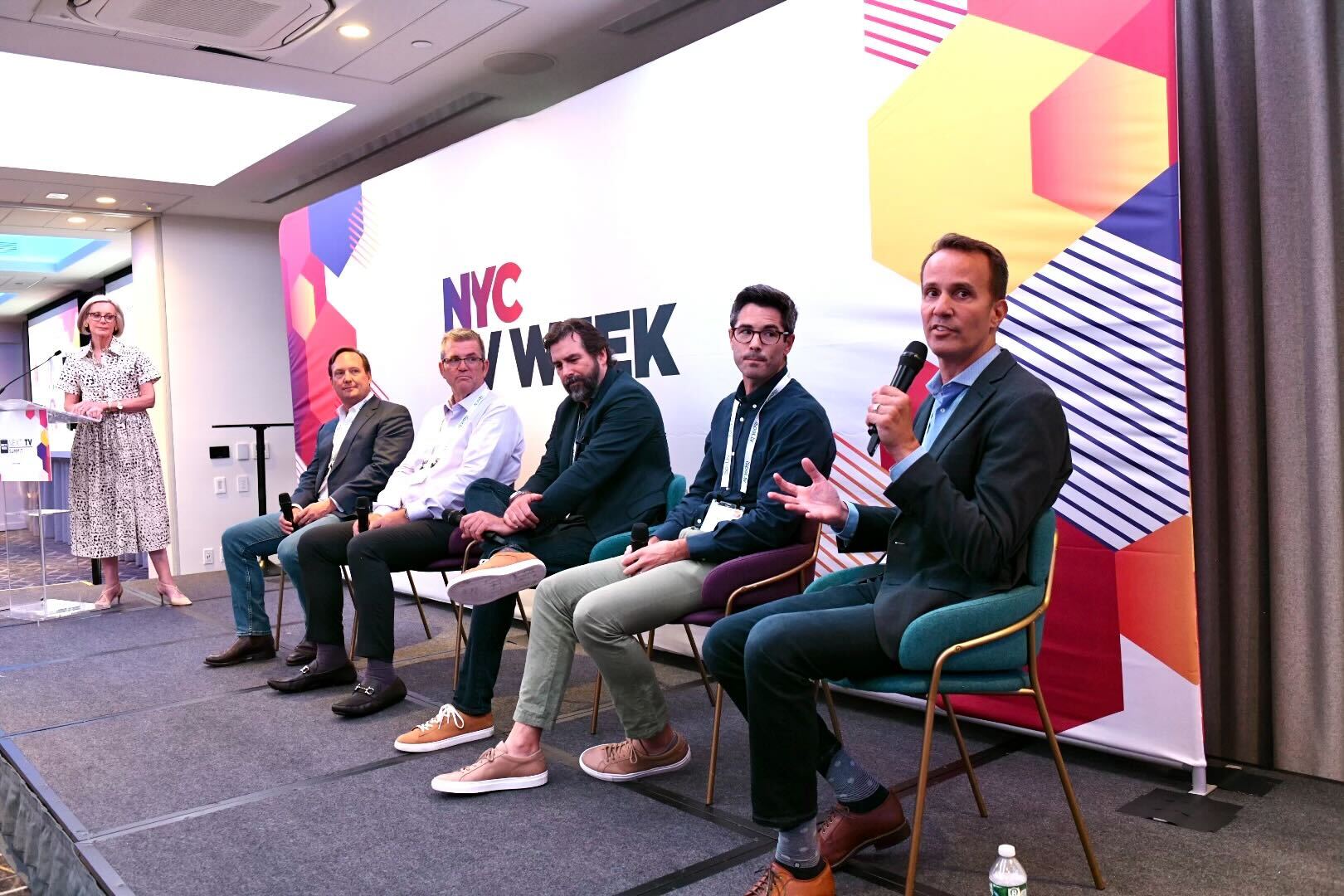Next TV Summit: Not So FAST — Platform Growth Brings Challenges
Panelists say ad revenue uncertainty, competition in play for platform

The smarter way to stay on top of the streaming and OTT industry. Sign up below.
You are now subscribed
Your newsletter sign-up was successful
FAST channels are on the rise, but executives speaking at the “What Makes FAST Go” panel at Tuesday’s Next TV Summit said that the platform’s fast growth has created some business challenges for distributors and content creators.
With more than 1,800 free, ad-supported TV (FAST) channels currently in the marketplace and a projected universe of 2,000 by the end of 2023, according to panel moderator and Rasenberger Media president Catherine Rasenberger, it’s becoming more difficult for content to stand out, panelists said.
“The competition is so fierce that we won’t bring a channel to market with fewer than 1,000 hours of programming,” said Stuart McLean, CEO of FAST Studios, which distributes sports-themed FAST channels targeting NASCAR fans, women’s sports and sports lifestyles. “Now that you see the major media companies rolling out their products, you really have to lean in as much as possible into original programming to make ourselves attractive to distributors.”
Cineverse president and chief strategy officer Erick Opeka added that content originality is vitally essential to distributors and viewers. “We’ve been working on defensible IP [intellectual property], where you use a single brand as a seed to launch a network and build original programming and brand extensions from there,” Opeka said of the streaming platform’s 36 FAST channels.
While FAST channels are surging into the marketplace, panelists said the advertising revenue model is still a work in progress. McLean said relying on programmatic ad sales for the bulk of a FAST’s revenue is a mistake, given the uncertainty of the market.
“If you’re relying on programmatic for your business, you don’t have a business,” he said, adding that his channels rely heavily on programming sponsorships to generate revenue. “Our ability to create custom content for brands is really our top strategy right now.”
Yet for FAST operators like Plex, which doesn’t own or create content, programmatic ad sales are very important to the bottom line, Plex VP of operations Todd Hay said.
The smarter way to stay on top of the streaming and OTT industry. Sign up below.
“My costs are in the distribution deals and the revenue-sharing deals I have with the content partners,” he said. “Since I don’t own the IP, it's hard for me to package and sell that so we’re 100% programmatic.”
With large media companies like A+E Networks, NBCUniversal, AMC Networks and Warner Bros. Discovery now getting into the FAST business with the launch of dozens of new, branded channels, several executives expressed concern that smaller companies may find it more difficult to get their channels distributed and recognized.
But Cineverse’s Opeka said that it should be technology, rather than a heavy reliance on legacy brands, that should drive the distribution of content to consumers.
“We’re literally using touchmarks from the past like brands to determine how we’re going to entertain people in the future, and the reality is that the technology is far better than that,” he said. “The whole notion of using brands is a shortcut to help people find what they really want. Instead, let's use technology to help people find what they want.”
Fuse Media senior vice president of digital strategy and operations Patrick Courtney added that FAST channel content featuring linear TV brands might not play as well with viewers in the FAST space. He added that Fuse’s FAST channels, such as Shades of Black, Latino Vibes and OUTtv Proud, have unique brands for the platform that will not be confused with the Fuse linear brand.
“What we came to understand is that Fuse is a very strong brand in pay TV, but it is not a FAST brand,” he said. “We put a lot of effort into making sure that those are extremely good, well-curated products that are effectively monetized for our partners for the FAST platform.”
Eric Berger, CEO and co-founder of kids-targeted Common Sense Networks said that big media brands don’t resonate in particular with younger viewers, who are more interested in user-generated and shortform content that showcase people who look like them. “The content we’re pulling for the FAST platform is not library content, but it's current and new and they are important brands to those that are watching because they can see themselves in it, and I think that’s why we’re continuing to gain carriage the way that we are today,” Berger said.
The Next TV Summit is part of NYC TV Week, which continues Wednesday morning with the Hispanic TV Summit. NYC TV Week is produced by Future plc, parent of Next TV, Broadcasting+Cable and Multichannel News.
R. Thomas Umstead serves as senior content producer, programming for Multichannel News, Broadcasting + Cable and Next TV. During his more than 30-year career as a print and online journalist, Umstead has written articles on a variety of subjects ranging from TV technology, marketing and sports production to content distribution and development. He has provided expert commentary on television issues and trends for such TV, print, radio and streaming outlets as Fox News, CNBC, the Today show, USA Today, The New York Times and National Public Radio. Umstead has also filmed, produced and edited more than 100 original video interviews, profiles and news reports featuring key cable television executives as well as entertainers and celebrity personalities.

